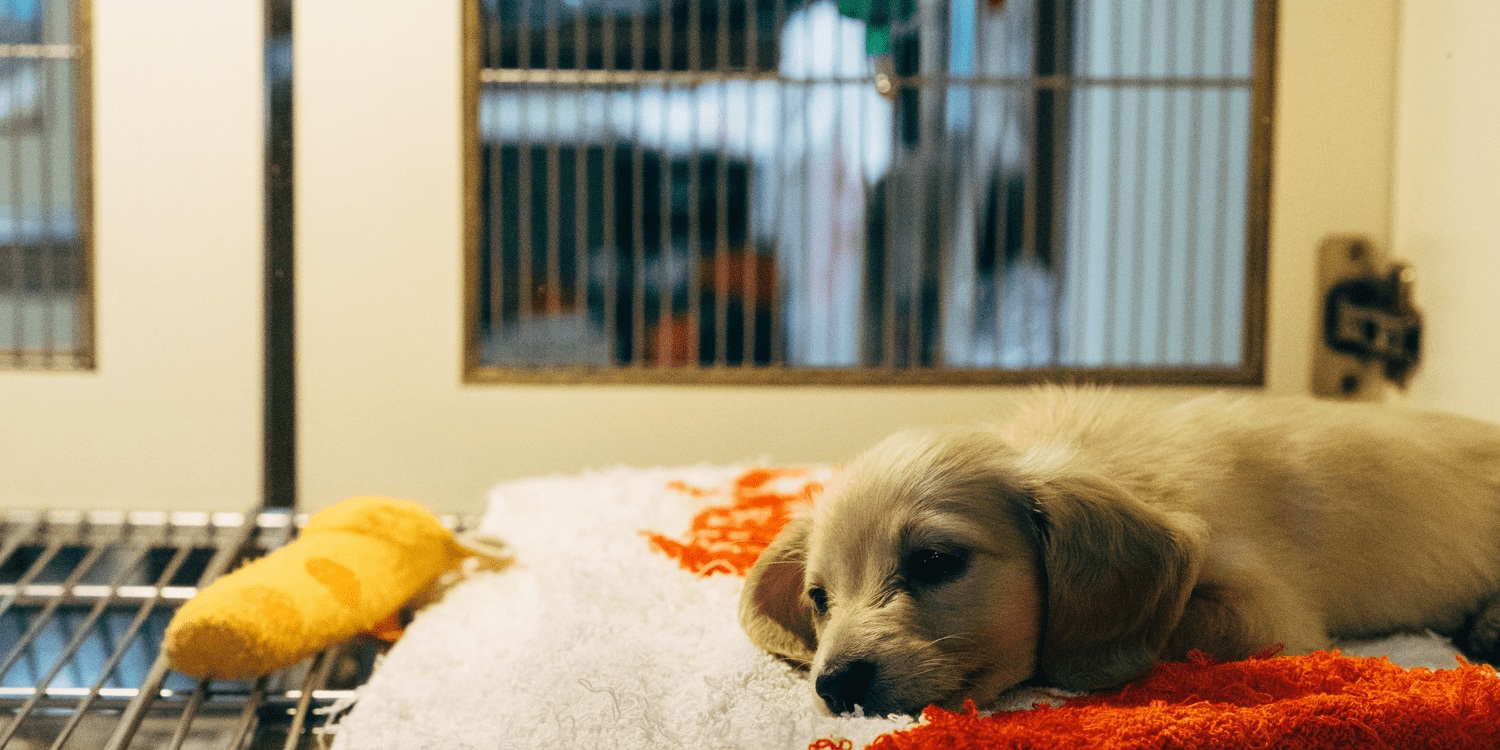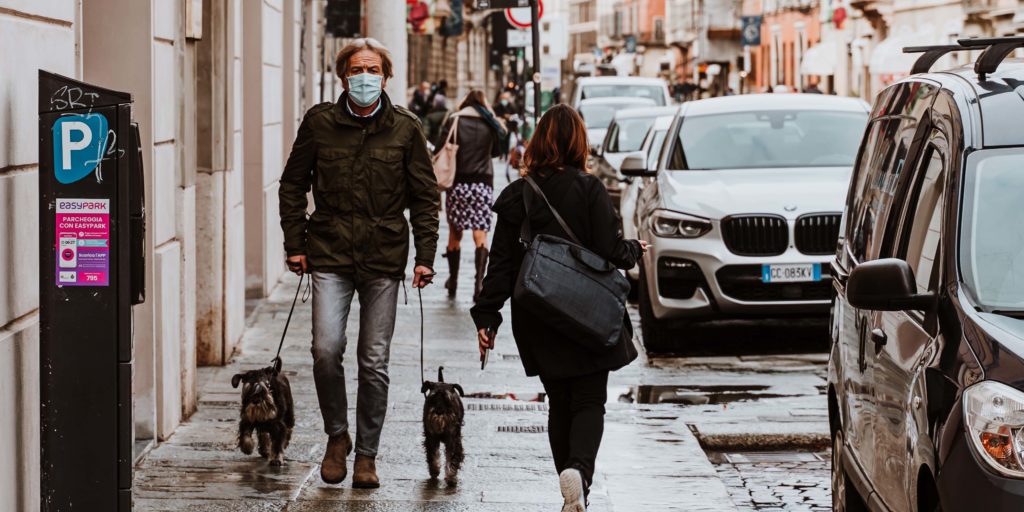Pet adoption soared across Wales and the UK as the coronavirus pandemic caused a mental health crisis, but now it’s animals who are suffering the most

When 2020 forced everyone into reclusion, the country faced a mental health crisis. People flocked to various methods to keep themselves afloat. From balcony singalongs to Thursday night rounds of applause, there was one coping mechanism that proved more popular than most: pets.
At the very start of the Covid-19 lockdown measures, the picture looked particularly bleak. A quarter of the population were feeling lonely, and with no reason to leave the house anymore, many struggled with feelings of purposelessness and a lack of responsibility. To remedy this, a lot of people turned to animals.
Pandemic pups
The advantages of owning a pet during the initial period for improving and stabilising mental health were well found. A recent study that questioned UK pet-owning residences about the role of their animal during the coronavirus pandemic found that 95 percent of owners couldn’t have imagined living without their animal at that time 87 percent of respondents also stated their animal was providing support to help them through Covid-19 emotionally.
As mainstream media and the masses caught on to the advantages of owning pets during lockdown, requests to adopt and purchase animals soared.
We’ve had more dogs this year than all of the years I have ever worked from people who have committed suicide, all local to South Wales
Sylvia Van Etta, CEO of Many Tears Rescue
Many Tears Rescue, who operates out of Llanelli in Carmarthenshire, specialises in rehoming animals from breeders that are deemed too old to be of use. The organisation has noticed an unprecedented rise in requests to adopt dogs. Sylvia Van Etta, CEO of the centre, said: “We’re getting hundreds of applications every day. It’s just a crazy situation. Everybody thinks they need a dog now.”

Her most distressing observation, however, has come through the number of dogs that have been given up by owners whose mental health has deteriorated. “We’ve had more dogs this year than all of the years I have ever worked from people who have committed suicide, all local to South Wales,” she declared distressingly.
Additionally, Hope Rescue has noticed a rise in those who are having to give away their animals for financial reasons, as a consequence of the economic downturn of the coronavirus pandemic.
In April, national charity Dog’s Trust warned up to 40,000 dogs could be at risk of abandonment following the coronavirus pandemic. Within their report, it specifically outlines the potential repercussions of national economic downturn on dog ownership. Particularly, if the following year mirrors the 2008 financial crisis, dog euthanasia rates could rise by as high as 25 percent.
Lacking support
However, for many, the greatest concern is the poor mental health of the UK’s population being paralleled in the health of their animals in light of more animals being back in shelters. And, despite the relative recency of events and restrictions surrounding Covid-19, rescue centres are already witnessing its effect.
“We’re starting to see dogs around the 10-11 month mark, acquired at the start of the pandemic, come into shelters. These animals are struggling as they haven’t had access to the correct resources and services,” Sarah commented.
Similarly, a Spanish study in April into altered animal behaviour as a result of Covid-19 found the shift in more irritable animals may be a signal of “early indicators of more serious future behaviour problems.”
Between ongoing social distancing protocols, discontinued services and limited socialisation, there lies a serious danger that many pets are not getting access to the emotional fulfilment they require.
A recent report by Battersea Dogs and Cats Home found veterinary visits have declined 80-90 percent since April, creating a situation in which pets’ medical needs are also not being seen.
Yet, there’s no easy solution to this issue. “Unfortunately, it’s rescues who face the brunt of it,” Sarah admitted. This is only worsened by the fact that most rescue centres have reported over 50 percent loss in income, while animals re-entering their shelters have doubled.
Sylvia from Many Tears has reported similar numbers. While there are less strays being taken in, she spoke of an unparalleled number of animals from unwell households, or families who cannot meet the needs of their pet anymore.
Now, as vaccines approved, the coronavirus looks to have a foreseeable demise. Regular human interaction looks to return, and with it the attached feelings of loneliness and isolation will fade for most.
As humans return to their nine-to-five jobs, animal mental health is only decaying further as issues of separation anxiety become more prevalent. The same wave of loneliness and poor mental health that swept us humans is now destined for pets.
While it may have been humans who took to animals to help them through Covid-19, it’s clear that it’s now the pets who are most in need of assistance.
Rising rates
Requests for adoption have skyrocketed across the globe since lockdowns have been put in place. Here are some key statistics:
- In South Wales, centres like Many Tears and Hope Rescue have seen applications more than double that of previous year, with the latter receiving 3,600 applications since lockdown began
- Between April, when the first lockdown was announced, and July, there was a 166% increase in the number of searches to ‘buy a puppy’
- A recent study in Israel found that 8% of new dog owners stated they felt lonely and/or stressed and believed that owning a dog might help, with 9.3% hearing about dog abandonment in the media and felt adopting was the right thing to do
- Across the whole UK, dog imports rose by 94% to match demand
- In the USA, shelter euthanasia rates have dropped 49% as more animals are being adopted
Photo credit: Ying Ge via Unsplash
